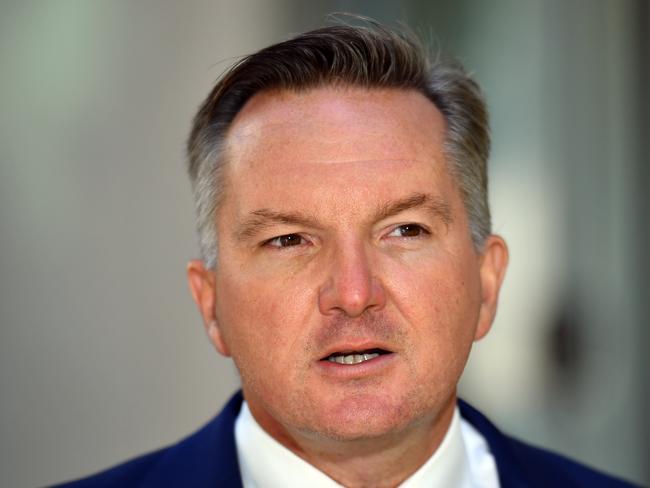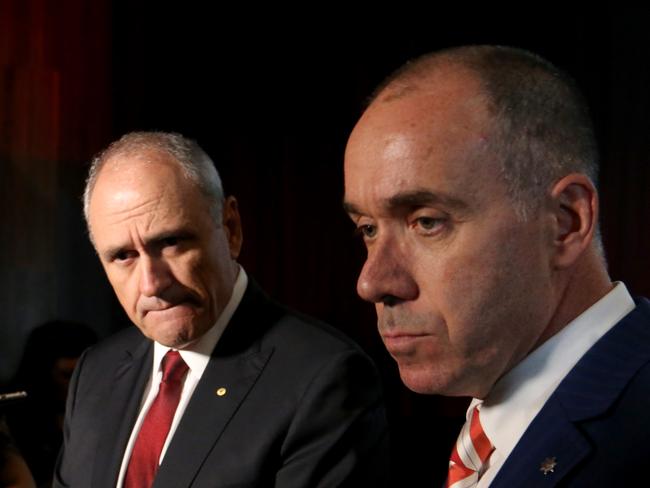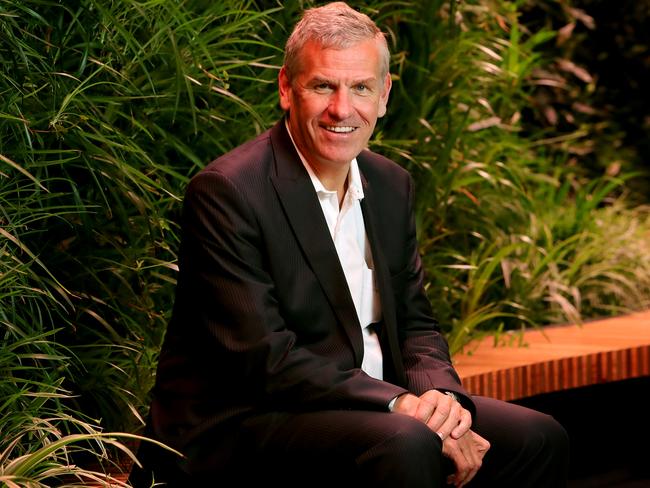Joe Hildebrand: How banks could finally be made to pay
The nation’s leading consumer law firm is taking matters into its own hands by threatening to make banks pay up, writes Joe Hildebrand in this exclusive.

Banking
Don't miss out on the headlines from Banking. Followed categories will be added to My News.
EXCLUSIVE
Buried beneath the brawl over boat people and pollies on planes is an issue that directly impacts far more Australians and costs millions of us thousands of dollars each.
Indeed, just a few short weeks ago it was the biggest and most pressing issue in the nation. Now it appears it will not even be dealt with in Parliament before the next election.
This is the scandal Australia forgot.
That scandal is of course the banking royal commission, which after months of explosive hearings that shocked even the most hardened cynics, handed down a report that could be most generously described as underwhelming.
Related: Record class action launched against Australia’s banks
Related: Banks face massively increased penalties for wrongdoing
Related: Bank heavyweights gone: Both NAB bosses quit after scathing report
Indeed, its most noteworthy recommendation was to force customers to pay upfront for mortgage brokers, which virtually everybody concerned agrees is a singularly stupid idea.
Now the nation’s leading consumer law firm is taking matters into its own hands and attempting what the banks, the government and the royal commission itself failed to do: set up a rigorous and independent process that will finally deliver justice to the thousands of customers ripped off by the big banks and associated financial institutions.
Slater and Gordon, which news.com.au revealed last year is in the process of filing a tidal wave of class actions against banks for stiffing superannuation customers, has taken the extraordinary step of offering the banks a way out.
The law firm is today publicly calling on the banks to set up an independent third party to get customers’ money back. It is understood the Labor-linked firm has also briefed Shadow Treasurer Chris Bowen on its plans.

The class actions have been focused on superannuation customers whose cash has been placed by bank-run super funds into the associated bank’s own accounts when they could have been getting a higher rate of interest elsewhere.
As news.com.au revealed, this could potentially amount to up to five million Australians being owed as much as $3000 each and cost the banks up to $1 billion.
The first of these class actions was launched in September last year and many more will roll out as evidence is collected and more and more people sign up. Collectively, it is set to be the biggest class action in Australian history.
However, in a remarkable move, the firm has indicated it will drop the upcoming legal cases if the banks set up a legitimate independent process to give customers back their money.
Should they fail to do this, however, the clear implication is that the firm will — to quote Russell Crowe in Gladiator — unleash hell.
As a source close to the case told news.com.au: “We’ve just had a royal commission that went for 12 months and cost $70 million and what did we get at the end of it? A couple of blokes resigned from the NAB. I mean seriously, what the f***?”

Slater and Gordon CEO John Somerville is just as clear but somewhat more diplomatic.
“We’ve spent a lot of time talking about bankers and politicians, but how about the victims?” he told news.com.au.
“Shouldn’t their interests be the priority? Are they meant to be just satisfied with what’s transpired? The response to the royal commission has to be better than just trying to ensure these things don’t happen again. We also have to be making people whole.
“Last year we launched the start of the nation’s biggest ever series of class actions. But how many more there are depends largely on the banks.
“We can keep filing class actions and we will hopefully deliver justice to our clients, but that can be a lengthy process for victims. And instead of spending millions fighting us in court, the banks do have another option.”
This would be to set up an independent process with a customer-focused body. The banks, as the commission has shown, cannot be trusted to act in the customer’s interests on their own.
“Structured remediation processes, with independent advice enabling aggrieved customers to understand what has happened to their money, and what their rights are, is the common sense way forward,” Mr Somerville said.

“The one thing banks can’t do is con themselves into thinking they can handle this process in-house.”
Most remarkable about the Slater and Gordon’s proposition is the fact the firm would stand to make substantially less money from such a process than a successful mass legal case — a rare act of altruism in the legal profession. The banks would also save millions in legal fees.
“Doing the right thing would actually be good for their business in the long-term. They can do the right thing and be seen to be doing the right thing,” Mr Somerville said.
“It’s great to admit wrongdoing, but you also have to take action, otherwise it means nothing.”
Nothing is certainly what we’ve seen so far. And anything has got to be better than that.
— Joe Hildebrand co-hosts Studio 10, 8.30am weekdays, on Network Ten and is editor-at-large for news.com.au.
— Continue the conversation on Twitter @Joe_Hildebrand or have you say in the comments below.
Originally published as Joe Hildebrand: How banks could finally be made to pay



